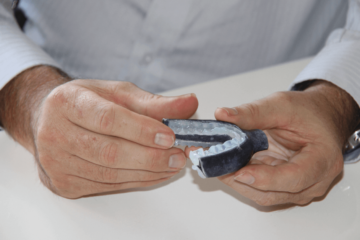Scalp psoriasis is a chronic autoimmune skin condition that affects millions of people worldwide. Characterized by red, inflamed patches covered with silvery scales, it can be both physically uncomfortable and emotionally distressing.
While there is no known cure for scalp psoriasis, several treatment options are available to help manage its symptoms and improve the quality of life for those affected.
Understanding Scalp Psoriasis
Scalp psoriasis occurs when the immune system mistakenly accelerates the growth cycle of skin cells, causing them to build up rapidly on the scalp’s surface. This results in the formation of scaly patches that can be itchy, painful, and even bleed if scratched excessively.
The condition can range from mild to severe, with some individuals experiencing isolated patches while others may have widespread involvement.
READ MORE:-Affordable AC Repair in Kaysville: Quality Workmanship
Treatment Strategies
Treatment for scalp psoriasis involves a combination of medical treatments, lifestyle adjustments, and home remedies. Treatment choice depends on the severity of the condition, individual preferences, and the response to previous treatments. Here are some common approaches:
1. Topical Treatments
Corticosteroids: These anti-inflammatory creams or ointments are often the first line of treatment. They help reduce itching, redness, and inflammation. Mild corticosteroids are suitable for the face and scalp, while stronger ones might be used for more severe cases.
Topical Calcineurin Inhibitors: These medications modulate the immune response and can be effective for controlling inflammation and reducing scaling.
Coal Tar Preparations: Coal tar shampoos, lotions, or creams can help slow down skin cell growth and alleviate symptoms. They are often used in combination with other treatments.
2. Phototherapy
UVB Light Therapy: Controlled exposure to UVB light can help slow down the growth of skin cells and reduce inflammation. UVB therapy can be administered in a doctor’s office or at home using a prescribed device.
3. Systemic Treatments
Oral Medications: In more severe cases, doctors may prescribe oral medications such as retinoids, methotrexate, or cyclosporine. These medications work by suppressing the immune system or affecting cell growth.
Biologics: These newer medications target specific immune pathways involved in psoriasis. They are usually reserved for severe cases that haven’t responded to other treatments.
4. Lifestyle Changes
Scalp Care: Regular and gentle cleansing of the scalp can help remove excess scales and improve the efficacy of topical treatments. Avoid using harsh shampoos that can worsen irritation.
Stress Management: Stress can trigger or exacerbate psoriasis flares. Engaging in relaxation techniques like yoga, meditation, or deep breathing can be beneficial.
Diet and Hydration: A balanced diet rich in fruits, vegetables, and omega-3 fatty acids can support skin health. Staying hydrated is also important.
5. Home Remedies
Moisturizers: Applying moisturizers, especially those containing salicylic acid or urea, can help soften scales and reduce itching.
Natural Oils: Some individuals find relief from using natural oils like coconut oil, tea tree oil, or aloe vera on their scalp.
READ MORE:- Affordable Refrigerator Repair in Ogden
Conclusion
Living with scalp psoriasis can be challenging, but with proper treatment and care, its impact can be minimized. Individuals must work closely with dermatologists to find the most effective treatment plan for their condition.
While there may not be a one-size-fits-all solution, the combination of medical interventions, lifestyle adjustments, and home remedies can significantly improve the quality of life for those dealing with scalp psoriasis. Remember, early diagnosis and proactive management are key to keeping symptoms under control and preventing further complications.



